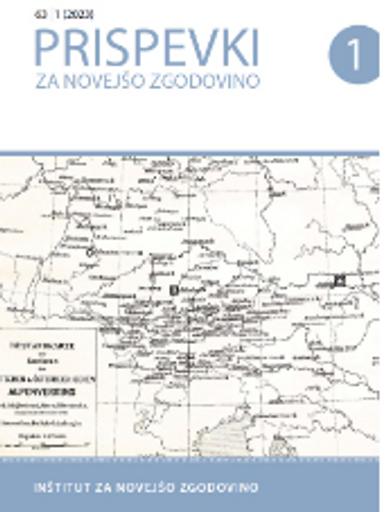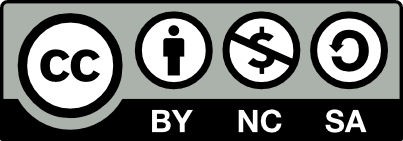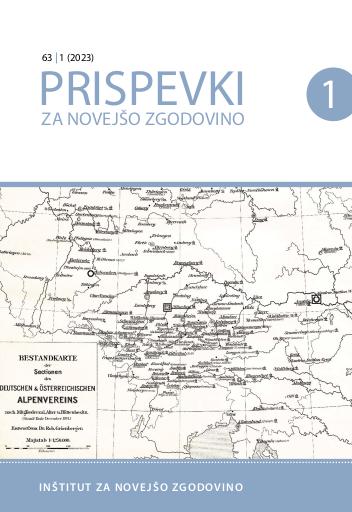
/
Serijske publikacije
/
Prispevki za novejšo zgodovino
The Passing of Stalin Is Not the End, or the Unstoppable Integration of the Socialist Market

Avtor(ji):Ondřej Fišer
Soavtor(ji):Jure Gašparič (gl. ur.), Andreja Jezernik (lekt.), Mojca Šorn (drugo), Studio S.U.R (prev.)
Leto:2023
Založnik(i):Inštitut za novejšo zgodovino, Ljubljana
Jezik(i):slovenščina, angleščina
Vrst(e) gradiva:besedilo
Ključne besede:ZSSR, Češkoslovaška, hladna vojna, gospodarsko sodelovanje, znanstveno-tehnično sodelovanje, trgovina, SEV (CMEA / COMECON), Antonín Novotný, Hruščova otoplitev, destalinizacija, praška pomlad, USSR, Czechoslovakia, Cold War, economic cooperation, scientific-technical cooperation, trade, CMEA, COMECON, Antonín Novotný, Khrushchev Thaw, de-Stalinization, Prague Spring
Avtorske pravice:

To delo avtorja Ondřej Fišer je ponujeno pod Creative Commons Priznanje avtorstva-Nekomercialno-Deljenje pod enakimi pogoji 4.0 Mednarodna
Datoteke (1)

Ime:PNZ_01_2023_web.pdf
Velikost:8.04MB
Format:application/pdf
Stalna povezava:https://hdl.handle.net/11686/file36285
Opis
This article deals with the development of economic cooperation in the socialist market between 1953 and 1968 from the perspective of the Czechoslovak economy. The period of Antonín Novotný at the helm of the Czechoslovak Communist Party was a controversial one, as it was characterized by both the efforts to reform Stalinist anachronisms and the initially low capacity to sustainably root these reforms in the fragile frozen ground of Cold War-era soil. The question is whether the gradually unfolding Khrushchev Thaw that accelerated its onset from the second half of the 1950s onwards made it possible to plant certain reforms and reap their fruits in the longer term. It is also necessary to raise the question of the nature of the key actors and obstacles in the process of reforming intra-bloc cooperation. In particular, the archives of the Czechoslovak industrial ministries located in Prague were consulted to research these issues.
Metapodatki (12)
- identifikatorhttps://hdl.handle.net/11686/56635
- naslov
- The Passing of Stalin Is Not the End, or the Unstoppable Integration of the Socialist Market
- The Passing of Stalin Is Not the End, or the Unstoppable Integration of the Socialist Market
- Stalinova smrt ne pomeni konca ali nezadržna integracija socialističnega trga
- avtor
- Ondřej Fišer
- soavtor
- Jure Gašparič (gl. ur.)
- Andreja Jezernik (lekt.)
- Mojca Šorn (drugo)
- Studio S.U.R (prev.)
- predmet
- ZSSR
- Češkoslovaška
- hladna vojna
- gospodarsko sodelovanje
- znanstveno-tehnično sodelovanje
- trgovina
- SEV (CMEA / COMECON)
- Antonín Novotný
- Hruščova otoplitev
- destalinizacija
- praška pomlad
- USSR
- Czechoslovakia
- Cold War
- economic cooperation
- scientific-technical cooperation
- trade
- CMEA
- COMECON
- Antonín Novotný
- Khrushchev Thaw
- de-Stalinization
- Prague Spring
- opis
- This article deals with the development of economic cooperation in the socialist market between 1953 and 1968 from the perspective of the Czechoslovak economy. The period of Antonín Novotný at the helm of the Czechoslovak Communist Party was a controversial one, as it was characterized by both the efforts to reform Stalinist anachronisms and the initially low capacity to sustainably root these reforms in the fragile frozen ground of Cold War-era soil. The question is whether the gradually unfolding Khrushchev Thaw that accelerated its onset from the second half of the 1950s onwards made it possible to plant certain reforms and reap their fruits in the longer term. It is also necessary to raise the question of the nature of the key actors and obstacles in the process of reforming intra-bloc cooperation. In particular, the archives of the Czechoslovak industrial ministries located in Prague were consulted to research these issues.
- založnik
- Inštitut za novejšo zgodovino
- datum
- 2023
- 16. 06. 2023
- tip
- besedilo
- jezik
- Slovenščina
- Angleščina
- jeDelOd
- pravice
- licenca: ccByNcSa